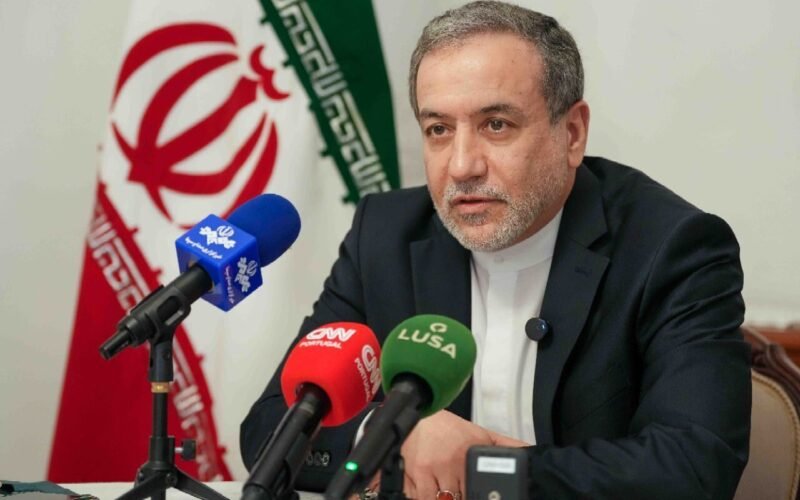Breaking! Iran Issues Stern Warning: No Deal If US Blocks Peaceful Nuclear Energy
Tehran, Iran – In a significant development in the ongoing nuclear negotiations, Iranian Foreign Minister Abbas Araqchi has issued a stern warning that there will be no deal if the United States insists on blocking Iran’s peaceful nuclear energy program. This statement comes amid heightened tensions between Iran and the US, with Israel also weighing in on the negotiations.
Araqchi dismissed Israeli threats to target Iran’s nuclear facilities if talks fail, describing them as “laughable.” However, he acknowledged that US-Israel consultations are natural, stating that Iran does not view the two countries as acting independently in the negotiations.
The Iranian Foreign Minister’s comments underscore the complexities and challenges in the nuclear talks between Iran and the US. While Iran has consistently maintained that its nuclear program is for peaceful purposes, the US and its allies have expressed concerns about the potential military dimensions of Iran’s nuclear activities.
Araqchi’s statement highlights the critical issue of Iran’s right to develop its nuclear energy program for peaceful purposes, which is a key aspect of the negotiations. Iran has long argued that it should be allowed to develop its nuclear energy capabilities without undue restrictions, while the US and its allies have pushed for strict limits on Iran’s nuclear activities.
The US and Israel have been consulting closely on the negotiations, and Araqchi’s comments suggest that Iran is aware of these consultations and is taking them into account in its approach to the talks. However, Iran’s position remains clear: it will not accept any deal that blocks its peaceful nuclear energy program.
The stakes are high in these negotiations, with significant implications for regional and global security. A successful deal would not only address the concerns of the US and its allies about Iran’s nuclear program but also provide a framework for Iran to develop its nuclear energy capabilities for peaceful purposes. This, in turn, could enhance regional stability and security, and potentially pave the way for increased cooperation between Iran and other countries in the region.
On the other hand, a failed deal would likely increase tensions between Iran and the US, potentially leading to further conflict and undermining regional stability and security. The implications of a failed deal would be far-reaching, with potential consequences for the global non-proliferation regime and the broader Middle East region.
The outcome of the nuclear negotiations between Iran and the US will have significant implications for the future of Iran’s nuclear program and the country’s relationships with other nations. If a deal is reached, it would likely involve strict monitoring and verification mechanisms to ensure that Iran’s nuclear program is peaceful, as well as provisions for Iran to develop its nuclear energy capabilities without undue restrictions.
As the negotiations continue, it remains to be seen whether the US and Iran can find common ground on the key issues. One thing is certain, however: Iran’s position on its peaceful nuclear energy program is non-negotiable, and any deal that fails to recognize this will be unacceptable to Tehran.
The nuclear negotiations between Iran and the US are taking place against a complex geopolitical backdrop, with multiple stakeholders and interests at play. The US, Israel, and other countries have expressed concerns about Iran’s nuclear program, while Iran has maintained that its program is for peaceful purposes.
The negotiations are also influenced by the broader regional dynamics, including the ongoing tensions between Iran and the US, as well as the complex relationships between Iran, Israel, and other countries in the Middle East. As the talks continue, it will be essential to consider the geopolitical implications of any deal and how it will be perceived by various stakeholders in the region.
A successful deal will require not only technical expertise but also a deep understanding of the complex geopolitics at play. The Iranian government has made it clear that it will not accept any deal that compromises its sovereignty or its right to develop its nuclear energy program for peaceful purposes. As such, the negotiations will likely be intense and challenging, with significant implications for the future of Iran’s nuclear program and the country’s relationships with other nations.




